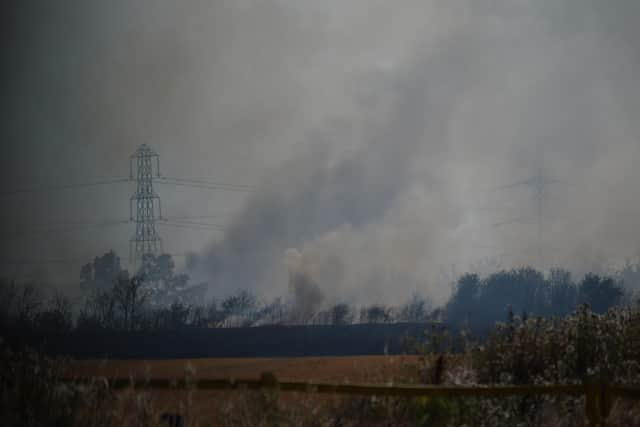Climate change: Record-breaking heatwave in northerly UK should make us fear for countries closer to the equator – Scotsman comment
Thankfully, this wake-up call has helped to focus minds on the need to adapt vital infrastructure – such as rail lines built to withstand up to 35 degrees Celsius – to cope with our new reality, particularly in southern Britain.
However, given Coningsby in Lincolnshire, where the UK’s new record temperature of 40.3C was recorded yesterday, is more than 53 degrees north, it should also make us think about countries closer to the equator.
Advertisement
Hide AdAdvertisement
Hide AdDue to a combination of heat and humidity, which degrades our ability to cool down by sweating, some areas are already experiencing sustained periods of weather that are potentially lethal.
In May, the New Delhi area saw temperatures of nearly 50C which made working outside almost impossible. As one labourer told Reuters: "Because of heat, sometimes I don't go to work. I take days off... many times, fall sick from dehydration.” Another spelt out their dilemma: “If we won't work, what will we eat?”
Faced with a choice between sickness or starvation, people will eventually be forced to find somewhere else to live. There are already people dubbed “climate refugees” after deciding to leave their homes, usually because it became increasingly difficult to survive as a farmer. Their numbers are only going to grow as the world continues to warm, leading to mass migration on a hitherto unprecedented scale, with all the political turmoil that this will produce.
And heat is just one aspect of many resulting from the staggeringly vast amounts of extra energy we are adding to the Earth’s atmosphere, which is roughly equivalent to several Hiroshima-sized nuclear bombs going off every single second.


Alongside droughts and wildfires that high temperatures produce, the world is also going to have to adapt to stronger storms, heavier rainfall, more flooding, and rising sea levels.
The record-breaking heatwave that hit our normally temperate, northern European island has provided a brief but salutary lesson about how much our climate is changing, in line with scientific research.
The question now is whether humanity will simply keep on adding to the problem or finally take the path, laid out so clearly by scientists, to safety.
Comments
Want to join the conversation? Please or to comment on this article.
